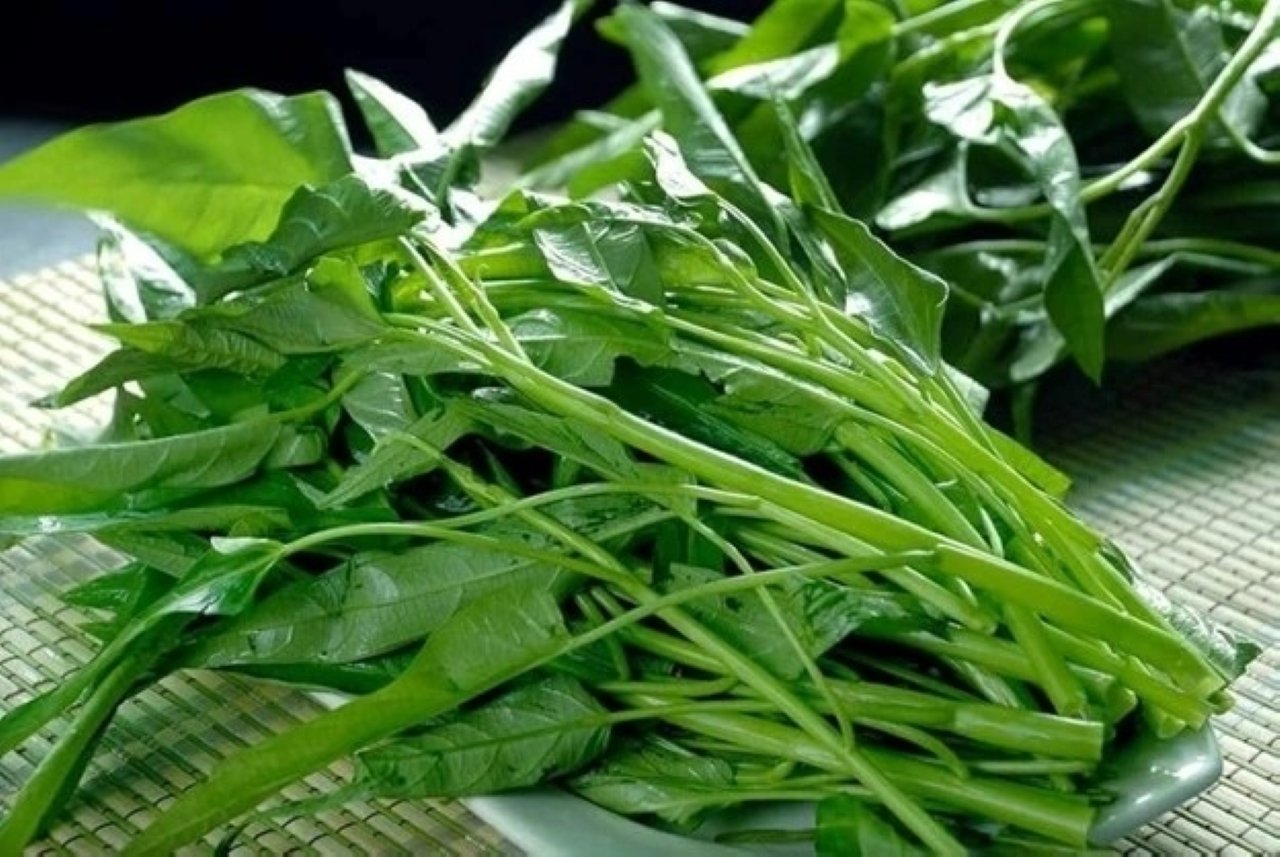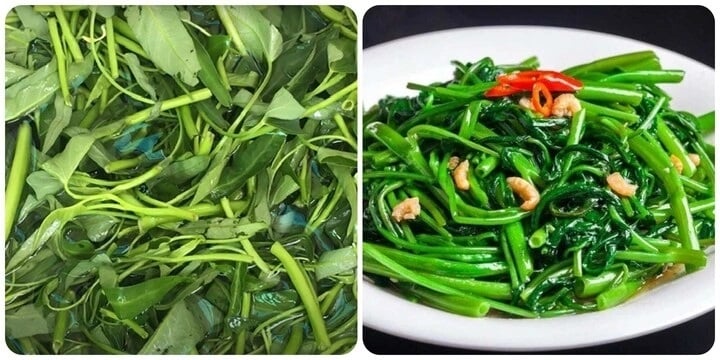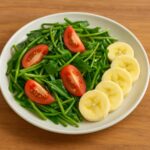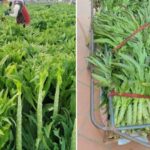Water spinach is a popular vegetable in Vietnamese cuisine, especially during the hot summer months. With its high nutritional value and myriad health benefits, it is a frequent staple in daily meals.
However, not everyone should consume water spinach. For individuals suffering from the following three conditions, in particular, the consumption of water spinach should be carefully considered to avoid adverse health effects:
1. People with Gastric Ulcers
In a stomach with an acidic environment, nitrite can easily combine with protein amines to form “nitrosamines,” a confirmed carcinogen in multiple animal experiments.
Researchers from Nanjing Medical University conducted an experiment to confirm that, within 24 hours of consuming water spinach, the nitrite concentration in gastric juice increased by 17%, and this increase was more evident in people with chronic gastric inflammation, reaching nearly 28%.
This indicates that water spinach is not inherently “toxic,” but rather its “high-speed metabolic style” is incompatible with individuals who have a slower bodily system.
Particularly for those with gastric inflammation, gastric ulcers, and Helicobacter Pylori infections, their gastric acid secretion is disrupted, and their stomach lining recovery ability is impaired. In such cases, consuming a dish of high-nitrate water spinach is akin to lighting a small flame in the stomach, slowly roasting it, which, over time, can lead to complications.

2. People with Kidney Issues
Additionally, those with kidney problems should pay close attention to the potassium content in water spinach. While many believe that eating water spinach can supplement potassium, it contains 300 mg of potassium per 100 grams, significantly higher than most vegetables.
While healthy individuals can consume a small amount as the food is quickly excreted through urine, those with reduced kidney function, such as patients with kidney disease or elderly individuals with impaired urinary excretory function, may experience cardiac rhythm disturbances if their body’s potassium levels increase.
A clinical investigation by the Third Military Medical University-affiliated Hospital in Chongqing revealed that among 68 patients with mild to moderate chronic kidney disease, the group consuming more than 200 grams of water spinach daily for two consecutive weeks showed an average increase of 0.5 mmol/L in blood potassium levels.
Out of these patients, 12 experienced transient cardiac arrhythmias, and three exhibited tall and peaked T waves on their electrocardiograms, an early typical sign of hyperkalemia. The doctors immediately concluded that if one cannot excrete potassium effectively, they should refrain from consuming large amounts of water spinach.
Regarding oxalic acid in water spinach, the issue is not merely about calcium absorption. The critical mechanism is its ruthless crystallization process. When oxalic acid enters the bloodstream and encounters free calcium, it immediately reacts to form calcium oxalate, an insoluble compound that readily deposits in the urinary system.
For individuals with a history of kidney stones or acidic urine, consuming excessive amounts of water spinach can increase the risk of stone formation.
A retrospective analysis from the Urology Department of the Xiamen University-affiliated Hospital showed that among kidney stone patients over the past five years, 61% frequently consumed vegetables with high oxalate content before the onset of the disease, with water spinach topping the list.
Stranger still, the investigation found that the likelihood of acute renal colic due to water spinach consumption in the summer was twice as high as in winter. This is because fluid loss is quicker in summer, leading to more concentrated urine, which facilitates oxalic acid clumping.

3. People with Open Wounds or Post-Surgery
Another group that should exercise caution when consuming water spinach is those with open wounds or those who have recently undergone surgery.
In folk belief, water spinach has long been associated with causing keloids. In reality, this belief is not entirely unfounded. Water spinach possesses a robust ability to promote fibrous tissue development and cell regeneration.
While this trait is beneficial for individuals without scarring tendencies, as it expedites wound healing, it can increase the likelihood of keloid formation for those with a keloid-prone complexion or those recovering from surgery. Keloids, once formed, are challenging to treat.
To avoid unwanted complications, individuals with wounds should refrain from consuming water spinach for at least four to six weeks post-surgery or until the wound has completely healed.
When this vegetable is introduced into the human body, it demands a similar pace: rapid excretion, high metabolism, ample oxygen, and calories. If the body’s rhythm cannot keep up with its pace, a “system incompatibility” may occur.
Even if you do not fall into any of these categories, it is advisable to consume water spinach in moderation and ensure food hygiene and safety to maximize the benefits derived from this humble vegetable.



































